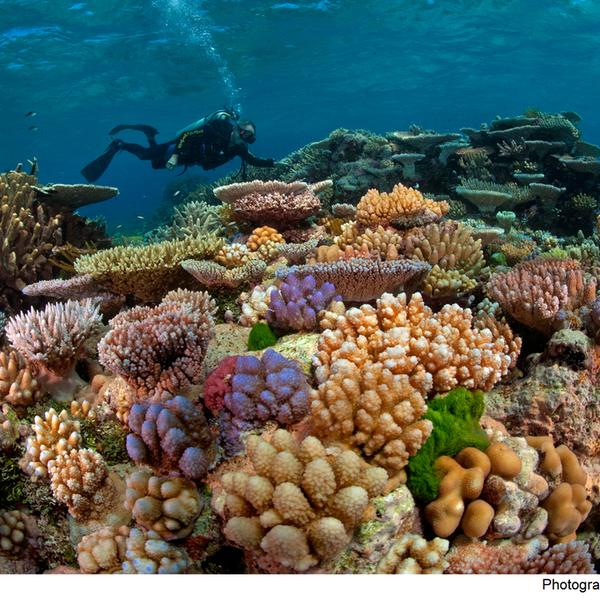According to CNN, as much as 93% of the 1,429 miles of Australia’s Great Barrier Reef suffers from some form of bleaching.According to CNN, as much as 93% of the 1,429 miles of Australia’s Great Barrier Reef suffers from some form of bleaching. As defined by the National Oceanic and Atmospheric Administration (NOAA)coral bleaching is when coral is stressed by changes in conditions such as temperature, light, or nutrients. Because of this stress, they expel the symbiotic algae living in their tissues, causing them to turn completely white.
In healthy coral, coral and algae depend on each other to survive because of their symbiotic relationship with microscopic algae called zooxanthellae that live in their tissues. These algae are the coral’s main food source and it gives them their color. When the symbiotic relationship between coral and algae becomes disrupted (because of increased ocean temperature or pollution), the algae leaves the coral’s tissue. The coral at this stage is considered stressed. Coral is considered bleached when the algae leaves the coral. Once the algae leaves, the coral loses its major source of food, turning white or extremely pale, it is also more susceptible to disease. Coral has been known to recover from bleaching events, if these events aren’t severe. If algae loss is prolonged and the stress continues, coral eventually dies.
Things that cause coral bleaching are changes in ocean temperature, runoff and pollution, overexposure to sunlight, and extremely low tides. Increased ocean temperature caused by climate change is the leading cause of coral bleaching. Storm generated precipitation can rapidly dilute ocean water and runoff can carry pollutants, bleaching the corals. When temperatures are high, high solar irradiance contributes to bleaching in show-water corals. Exposure to the air during extreme low tides can cause bleaching in shallow corals. Disease, changes in the salinity (saltiness) of seawater, and sedimentation from undersea activities such as dredging all contribute to bleaching.
So why should you be concerned?
Coral reefs are important to ocean ecosystems. Coral reefs shelter 25% of marine species, they protect shorelines, support fishing industries, provide tourist dollars (in regions that rely heavily on tourist dollars such as Australia and the Caribbean) and could provide medical benefits (though this is still being researched).
Even if people don’t live near the coast, they can still help protect coral reefs. They can do this by reducing their carbon footprint not only just to save energy- but also to keep greenhouse gases out of the atmosphere, which helps combat climate change and maintain appropriately cool ocean temperatures.
Ways to reduce your carbon footprint include walking, biking, or taking public transportation instead of driving. Planting trees and support forest conservation, as trees store carbon and reduce agricultural run-off, which may end up in the ocean.





















